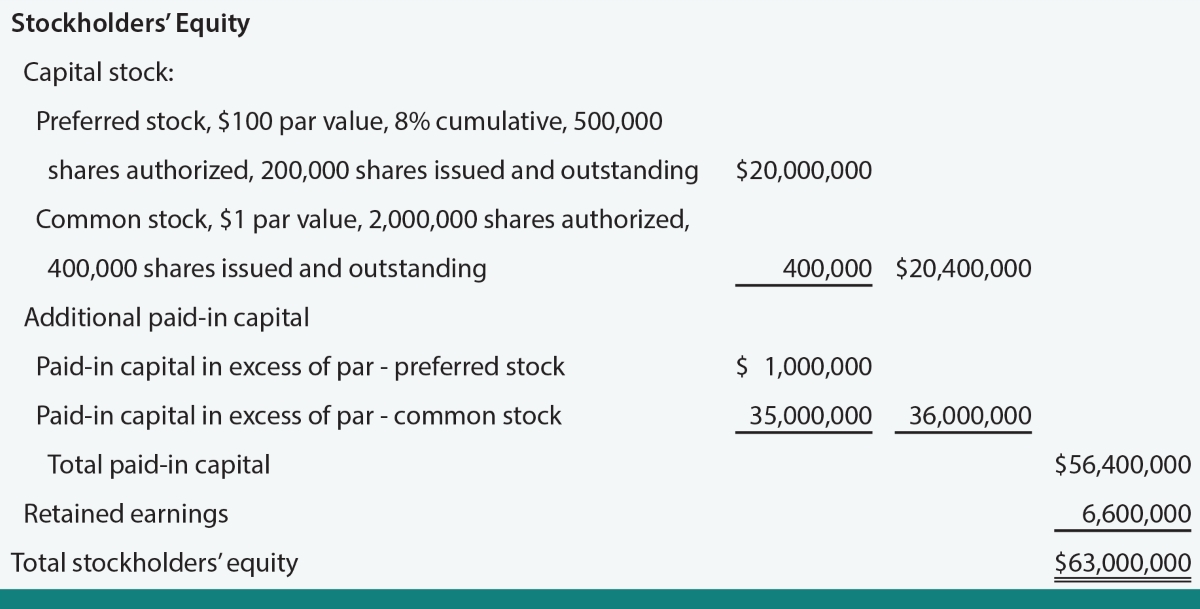

Finance
What Is A BBA In Accounting
Published: October 12, 2023
(Many of the links in this article redirect to a specific reviewed product. Your purchase of these products through affiliate links helps to generate commission for LiveWell, at no extra cost. Learn more)
Table of Contents
- Introduction
- Overview of a BBA in Accounting
- Curriculum of a BBA in Accounting
- Core Accounting Courses
- Business Courses in a BBA Accounting Program
- Elective Courses in a BBA Accounting Program
- Career Opportunities for BBA Accounting Graduates
- Skills Developed in a BBA Accounting Program
- Advantages of Pursuing a BBA in Accounting
- Disadvantages of Pursuing a BBA in Accounting
- Conclusion
Introduction
A Bachelor of Business Administration (BBA) in Accounting is a degree program designed to provide students with a strong foundation in accounting principles and practices, as well as a comprehensive understanding of business fundamentals. This program is ideal for individuals who have a keen interest in finance and numbers and aspire to pursue a career in the field of accounting.
Accounting plays a critical role in every business, regardless of its size or industry. It involves the systematic recording, analysis, and reporting of financial transactions, helping businesses make informed decisions and maintain financial transparency. Therefore, professionals with a BBA in Accounting are in high demand in various sectors such as corporate finance, public accounting firms, government agencies, and non-profit organizations.
A BBA in Accounting program typically spans four years and combines coursework in accounting, finance, business law, economics, and management principles. Students are exposed to a blend of theoretical knowledge, practical skills, and real-world applications to prepare them for the dynamic and challenging accounting profession.
Throughout this article, we will delve deeper into the curriculum of a BBA in Accounting, the core accounting courses, business courses, and elective courses that are typically included in the program. We will also explore the various career opportunities available for BBA Accounting graduates, the skills they develop throughout their studies, and the advantages and disadvantages of pursuing a BBA in Accounting.
So, if you’re considering a career in accounting and want to know more about the BBA in Accounting program, keep reading to gain valuable insights into this exciting field of study.
Overview of a BBA in Accounting
A Bachelor of Business Administration (BBA) in Accounting is a specialized degree program that equips students with the knowledge and skills needed to excel in the field of accounting. This program provides a comprehensive understanding of financial reporting, tax regulations, auditing, and financial analysis.
One of the primary objectives of a BBA in Accounting is to develop students’ analytical skills, critical thinking abilities, and attention to detail, which are crucial qualities for a successful career in accounting. The curriculum focuses on core accounting principles, ethical considerations, and the use of accounting software and technology.
Students in a BBA in Accounting program learn how to prepare financial statements, record and analyze financial data, interpret accounting information, and utilize accounting information systems effectively. They are also trained in auditing techniques to ensure the accuracy and reliability of financial information.
Moreover, students gain a solid foundation in business fundamentals, including economics, marketing, management, and business law. This broad-based knowledge helps them understand the broader context in which accounting functions within an organization.
Furthermore, many BBA in Accounting programs incorporate experiential learning opportunities, such as internships or cooperative education, to provide students with real-world exposure to the accounting profession. These practical experiences allow students to apply their classroom knowledge in a professional setting and build a network of industry contacts.
Upon completion of a BBA in Accounting, graduates are well-prepared to pursue various career paths in the field of accounting. Many graduates choose to become Certified Public Accountants (CPAs) by passing the CPA exam, which opens up numerous opportunities in public accounting firms, including auditing, tax planning, and financial consulting.
Others may choose to work in corporate finance departments, where they are responsible for financial analysis, budgeting, and forecasting. Some graduates may also opt for careers in government agencies, non-profit organizations, or as financial consultants.
In summary, a BBA in Accounting provides students with a comprehensive understanding of accounting principles, business fundamentals, and analytical skills needed for a successful career in the accounting profession. It prepares graduates for a wide range of job opportunities, from public accounting firms to corporate finance departments.
Curriculum of a BBA in Accounting
A Bachelor of Business Administration (BBA) in Accounting program offers a well-rounded curriculum that combines accounting courses with business, finance, and general education courses. The curriculum is designed to provide students with a comprehensive understanding of accounting principles, financial reporting, taxation, auditing, and business operations. Let’s take a closer look at the typical curriculum of a BBA in Accounting program:
Core Accounting Courses: The core accounting courses form the foundation of a BBA in Accounting program. These courses cover topics such as financial accounting, managerial accounting, cost accounting, and advanced accounting. Students learn how to prepare financial statements, analyze financial data, and apply accounting principles in various business scenarios.
Business Courses: In addition to accounting courses, students are required to take a variety of business courses. These courses provide a broader perspective on business operations and help students understand how accounting fits into the larger business context. Common business courses include economics, business law, marketing, finance, and management.
Finance Courses: Finance plays a crucial role in the accounting field, and therefore, finance courses are often included in the curriculum of a BBA in Accounting program. These courses cover topics such as corporate finance, investments, financial planning, and risk management. Understanding finance principles is essential for making sound financial decisions and analyzing the financial performance of companies.
Taxation Courses: Taxation is a significant aspect of accounting, and students in a BBA in Accounting program learn about various tax laws and regulations. These courses cover topics such as individual taxation, business taxation, tax planning, and tax compliance. Students gain an understanding of how taxes impact financial decisions and how to ensure compliance with tax laws.
Auditing and Assurance Courses: Auditing courses focus on the examination and verification of financial records to ensure accuracy and compliance with accounting standards. Students learn auditing techniques, professional ethics, and the responsibilities of auditors. These courses also cover topics related to internal control systems, risk assessment, and the audit process.
Elective Courses: BBA in Accounting programs often offer elective courses that allow students to specialize in specific areas of accounting or business. These courses may include topics such as forensic accounting, international accounting, accounting information systems, or advanced financial analysis. Elective courses provide students with the opportunity to tailor their education to their specific interests and career goals.
General Education Courses: Alongside the specialized accounting and business courses, a BBA in Accounting program typically includes general education courses. These courses cover subjects such as English, mathematics, social sciences, natural sciences, and humanities. General education courses help students develop critical thinking, communication, and problem-solving skills, which are essential for success in any professional field.
It’s important to note that the specific curriculum may vary from one institution to another. Some programs may offer additional courses or different course titles, but the overall goal is to provide students with a comprehensive education in accounting and business.
By completing the curriculum of a BBA in Accounting program, students gain the knowledge and skills necessary to pursue a variety of accounting-related careers and have a solid foundation for further education or professional certifications, such as becoming a Certified Public Accountant (CPA).
Core Accounting Courses
Core accounting courses form the backbone of a Bachelor of Business Administration (BBA) in Accounting program. These courses provide students with a deep understanding of fundamental accounting principles and techniques, shaping them into competent accounting professionals. Let’s explore some of the core accounting courses typically included in a BBA in Accounting curriculum:
1. Financial Accounting: Financial Accounting is a foundational course that introduces students to the principles and techniques used to analyze and report an organization’s financial transactions. Students learn to prepare financial statements, including balance sheets, income statements, and cash flow statements, while adhering to Generally Accepted Accounting Principles (GAAP). This course provides a comprehensive understanding of financial statement analysis and the framework for interpreting financial data.
2. Managerial Accounting: Managerial Accounting focuses on the internal use of accounting information for decision-making purposes. Students learn how to analyze costs, budgeting, and performance evaluation within organizations. Managerial accounting techniques and tools are utilized to assist management in planning, controlling, and decision-making processes. This course provides insight into the role of accounting in facilitating effective managerial decision-making.
3. Cost Accounting: Cost Accounting focuses on the study of costs incurred in the production and distribution of goods and services. Students learn to track, analyze, and allocate costs to different components of a business, such as products, departments, or projects. Cost accounting techniques help in determining product profitability, cost control, and making informed decisions related to pricing, production planning, and budgeting.
4. Advanced Accounting: Advanced Accounting courses delve into complex accounting concepts and practices. Students explore topics such as consolidations, partnerships, foreign currency transactions, and governmental accounting. These courses provide a deeper understanding of specialized areas of accounting, enabling students to handle intricate accounting scenarios and prepare financial statements for complex organizations.
5. Financial Statement Analysis: Financial Statement Analysis is a critical course in a BBA in Accounting program. Students learn how to evaluate and interpret financial statements to assess the financial health and performance of organizations. Various techniques, ratios, and methods are employed to analyze financial statements and make informed decisions regarding investments, lending, and overall financial management.
6. Auditing and Assurance Services: Auditing and Assurance Services courses introduce students to the principles and practices of auditing. Students learn about the auditing process, including planning, gathering evidence, evaluating internal controls, and forming an opinion on financial statements’ reliability. Ethical considerations, professional standards, and audit risk assessment are also covered in these courses.
7. Income Tax Accounting: Income Tax Accounting courses focus on understanding the principles and regulations of taxation. Students learn the tax code, tax planning strategies, and tax compliance requirements for individuals and businesses. These courses provide the foundation for navigating the complex field of taxation and equipping students with the knowledge to advise individuals and organizations on tax-related matters.
These core accounting courses lay the groundwork for a career in accounting by equipping students with the necessary skills and knowledge to excel in the field. They provide a well-rounded understanding of financial reporting, analysis, cost management, and auditing practices. By mastering these core concepts, students are prepared to pursue various career opportunities, including positions in public accounting firms, corporate finance departments, government agencies, and non-profit organizations.
Business Courses in a BBA Accounting Program
In addition to core accounting courses, a Bachelor of Business Administration (BBA) in Accounting program includes a range of business courses that provide students with a comprehensive understanding of various business functions. These courses help students develop a broader perspective and acquire essential skills that are valuable in the accounting profession. Let’s explore some of the common business courses included in a BBA in Accounting curriculum:
1. Economics: Economics courses introduce students to the principles of microeconomics and macroeconomics. They learn about supply and demand, market structures, economic indicators, and fiscal and monetary policies. An understanding of economics is crucial in analyzing the financial context of businesses and making informed financial decisions.
2. Business Law: Business Law courses cover legal principles and regulations that govern business operations. Students learn about contracts, torts, intellectual property, employment law, and ethical considerations in business. Knowledge of business law is essential for accountants to navigate legal issues and ensure compliance with the law in financial reporting and decision-making.
3. Marketing: Marketing courses provide insights into customer behavior, market research, segmentation, branding, and promotion. Understanding marketing concepts is valuable for accountants as they analyze the financial impact of marketing efforts, evaluate pricing strategies, and assess market trends that influence financial performance.
4. Finance: Finance courses expose students to concepts such as financial management, investments, risk analysis, and capital budgeting. These courses provide students with the knowledge required to assess the financial health of organizations, analyze investment opportunities, and make financial decisions based on risk and return considerations.
5. Management: Management courses focus on principles and practices of organizational behavior, leadership, strategic planning, and human resource management. These courses provide students with an understanding of how organizations are managed and help develop skills in collaboration, decision-making, and problem-solving, which are valuable in accounting roles.
6. Business Ethics and Corporate Social Responsibility: Business Ethics and Corporate Social Responsibility courses explore ethical challenges that businesses face and the importance of ethical decision-making. Students learn about ethical frameworks, social responsibility, and the impact of business activities on society. Ethical considerations are integral to the accounting profession, as accountants are entrusted with maintaining financial transparency and upholding professional ethics.
7. Operations Management: Operations Management courses focus on the efficient management of business operations, including supply chain management, process optimization, inventory management, and quality control. This knowledge is valuable for accountants as they evaluate costs, assess productivity, and contribute to improving operational efficiency within an organization.
These business courses provide students with a well-rounded business education, enabling them to understand the broader context in which accounting operates. They equip accounting professionals with valuable skills such as critical thinking, problem-solving, communication, and teamwork, which are vital for success in the accounting field.
By combining core accounting courses with business courses, a BBA in Accounting program prepares students to not only excel in accounting roles but also to contribute effectively to overall business operations. It enhances their ability to collaborate with colleagues from different functional areas, make well-informed financial decisions, and understand the impact of accounting on organizational performance.
Elective Courses in a BBA Accounting Program
Elective courses play an important role in a Bachelor of Business Administration (BBA) in Accounting program, allowing students to specialize in specific areas of accounting or explore related business disciplines. These courses provide students with the opportunity to tailor their education based on their interests and career goals. Let’s explore some common elective courses that are often offered in a BBA in Accounting curriculum:
1. Forensic Accounting: Forensic Accounting courses focus on investigating financial fraud and white-collar crimes. Students learn techniques for detecting and preventing fraudulent activities, conducting internal investigations, and analyzing financial data to uncover irregularities. Forensic Accounting skills are essential in roles such as forensic auditors or consultants, as they help organizations identify and mitigate financial risks.
2. International Accounting: International Accounting courses cover accounting practices and standards followed in different countries. Students learn about the challenges and complexities of accounting in a global business environment. Topics may include foreign currency translation, international financial reporting standards (IFRS), and international tax regulations. Understanding international accounting principles is valuable for accountants working for multinational corporations or in international contexts.
3. Accounting Information Systems: Accounting Information Systems courses focus on the use of technology and computer systems in accounting processes. Students learn about database management, software applications, and control mechanisms in accounting systems. This course develops skills in using accounting software and understanding how technology can enhance efficiency, accuracy, and security in accounting operations.
4. Advanced Financial Analysis: Advanced Financial Analysis courses build on the foundation of financial statement analysis and delve deeper into evaluating financial data. Students learn advanced techniques for financial forecasting, ratio analysis, valuation, and financial modeling. These skills are invaluable for financial analysts, investment bankers, and professionals involved in mergers and acquisitions.
5. Taxation Planning and Strategy: Taxation Planning and Strategy courses focus on developing skills in tax planning for businesses and individuals. Students learn about tax optimization strategies, tax implications of business decisions, and tax planning techniques to minimize tax liabilities. This course equips students with valuable knowledge for roles such as tax consultants or tax managers.
6. Ethics in Accounting and Finance: Ethics in Accounting and Finance courses explore ethical dilemmas that professionals face in the accounting and finance fields. Students learn about ethical frameworks, professional codes of conduct, and ethical decision-making processes. This course emphasizes the importance of integrity, objectivity, and professional ethics in accounting roles.
7. Business Strategy: Business Strategy courses provide an overview of strategic planning and analysis in a business context. Students learn how to formulate and implement business strategies, assess competitive environments, and evaluate strategic opportunities. This course enhances the ability of accountants to align financial decisions with broader organizational goals and contribute to strategic decision-making processes.
These elective courses allow students to delve into specialized areas of accounting, explore related disciplines, or develop additional skills that complement their accounting knowledge. By choosing electives aligned with their career goals, students can enhance their expertise and differentiate themselves in the job market.
It’s worth noting that the availability of elective courses may vary between institutions and program offerings. Students should consult their program advisors to determine the specific elective courses available in their BBA in Accounting program and select those that align with their interests and career aspirations.
Career Opportunities for BBA Accounting Graduates
A Bachelor of Business Administration (BBA) in Accounting opens up a wide range of career opportunities in the accounting and finance field. Graduates of this program possess a strong foundation in accounting principles, business fundamentals, and analytical skills, making them well-prepared for various roles within different sectors. Let’s explore some of the career opportunities available for BBA Accounting graduates:
1. Public Accounting: Many BBA Accounting graduates pursue careers in public accounting firms. They can work in areas such as auditing, tax planning and compliance, financial consulting, and forensic accounting. Graduates may have the opportunity to become Certified Public Accountants (CPAs) after meeting the respective certification requirements. Public accounting firms provide exposure to various industries and clients, allowing professionals to gain a diverse range of experiences.
2. Corporate Accounting: BBA Accounting graduates can find rewarding roles within the accounting departments of corporations. They may work as staff accountants, financial analysts, budget analysts, or internal auditors. These roles involve financial reporting, analysis, budgeting, expense management, and ensuring compliance with accounting policies and regulations. Corporate accountants are responsible for maintaining accurate financial records and providing management with insights for decision-making.
3. Government and Non-Profit Organizations: BBA Accounting graduates can find opportunities in government agencies and non-profit organizations. These roles often involve managing funds, budgeting, financial reporting, and ensuring compliance with government regulations. Graduates with an interest in supporting public services or making a difference in the non-profit sector can find rewarding careers in these organizations.
4. Financial Services: BBA Accounting graduates can pursue careers in the financial services industry, including positions such as financial analysts, investment analysts, or risk analysts. These roles involve analyzing financial data, evaluating investment opportunities, assessing risk, and making informed financial recommendations. Graduates with strong analytical skills and a solid understanding of financial markets can thrive in the fast-paced and dynamic financial services industry.
5. Entrepreneurship and Consulting: Some BBA Accounting graduates choose to leverage their accounting knowledge and start their own businesses or work as independent consultants. They can provide accounting and financial advisory services to small businesses, startups, or organizations in need of specialized expertise. This path requires a strong entrepreneurial drive, excellent communication skills, and the ability to navigate complex financial situations.
6. Further Education and Specialization: After completing a BBA in Accounting, graduates may opt to pursue further education or certifications to specialize in specific areas of accounting or finance. This can include pursuing a Master’s degree in accounting, finance, or a related field. Graduates may also choose to become Certified Management Accountants (CMAs), Certified Fraud Examiners (CFEs), or Certified Internal Auditors (CIAs) to enhance their career prospects and develop expertise in niche areas.
In summary, a BBA Accounting degree offers a plethora of career opportunities across various sectors. Graduates are equipped with the skills and knowledge to excel in accounting roles, both in public accounting firms and corporate environments. The diverse range of career paths available allows graduates to choose an area that aligns with their interests, strengths, and long-term goals.
Skills Developed in a BBA Accounting Program
A Bachelor of Business Administration (BBA) in Accounting program offers students the opportunity to develop a wide range of skills that are essential for success in the accounting profession. These skills go beyond technical accounting knowledge and encompass critical thinking, problem-solving, communication, and ethical decision-making. Let’s explore some of the key skills that students develop during a BBA in Accounting program:
1. Accounting and Financial Analysis: Students gain a solid understanding of accounting principles, financial reporting, and analysis. They learn how to prepare financial statements, analyze financial data, and interpret the financial health of organizations. These skills enable graduates to make informed financial decisions and provide valuable insights to stakeholders.
2. Attention to Detail: Accuracy and attention to detail are critical in accounting. BBA Accounting students develop a meticulous approach to handling financial records, ensuring that information is accurate and adheres to accounting standards. They acquire the ability to spot errors, identify discrepancies, and reconcile financial data to maintain the integrity of financial information.
3. Analytical Thinking: BBA Accounting programs emphasize analytical thinking to solve complex financial problems. Students learn how to analyze financial statements, evaluate financial performance, and make projections based on historical data. They develop skills in identifying trends, assessing risk, and recommending financial strategies.
4. Communication Skills: Effective communication is crucial in the accounting profession. BBA Accounting students learn how to convey financial information to diverse stakeholders, including clients, colleagues, and management. They develop the ability to present complex financial concepts in a clear and concise manner, both orally and in written reports.
5. Time Management: BBA Accounting programs often expose students to a demanding workload, which necessitates effective time management skills. Students learn to prioritize tasks, meet deadlines, and handle multiple projects simultaneously. Time management skills enable graduates to navigate the fast-paced nature of the accounting profession.
6. Ethical Decision-Making: Ethics play a crucial role in accounting, and BBA Accounting programs emphasize the importance of ethical behavior. Students learn about professional ethics, ethical frameworks, and the ethical responsibilities of accountants. They develop the ability to analyze ethical dilemmas and make sound ethical decisions in financial reporting and decision-making processes.
7. Software Proficiency: BBA Accounting students gain proficiency in accounting software and technology. They learn to utilize accounting software to process financial transactions, generate reports, and analyze data. Familiarity with software such as QuickBooks, Excel, and enterprise resource planning (ERP) systems enhances their efficiency and effectiveness in accounting-related tasks.
8. Collaboration and Teamwork: BBA Accounting programs often include group projects and collaborative assignments. Students learn to work effectively in teams, communicate with team members, and leverage collective knowledge and skills. Collaboration and teamwork skills are vital as accountants often work with cross-functional teams and need to effectively communicate financial information to colleagues in other departments.
9. Adaptability and Continuous Learning: The accounting field is constantly evolving, with changes in regulations and advancements in technology. BBA Accounting graduates develop adaptability skills necessary to keep up with these changes and embrace new accounting practices and tools. They also develop a mindset of continuous learning, staying informed about industry developments and seeking professional development opportunities.
These skills developed in a BBA Accounting program equip graduates to excel in the accounting profession. From technical accounting knowledge to analytical thinking, communication, and ethical decision-making, these skills are highly valued by employers in various industries and lay the foundation for long-term success in accounting roles.
Advantages of Pursuing a BBA in Accounting
Pursuing a Bachelor of Business Administration (BBA) in Accounting offers numerous advantages for individuals interested in a career in the accounting field. This specialized degree program equips students with a strong foundation in accounting principles, business knowledge, and analytical skills. Here are some key advantages of pursuing a BBA in Accounting:
1. Diverse Career Opportunities: A BBA in Accounting opens up a wide range of career opportunities in various sectors. Graduates can pursue careers in public accounting firms, corporate accounting departments, government agencies, non-profit organizations, or financial institutions. The versatility of the degree allows individuals to explore different avenues and adapt to diverse work environments.
2. Strong Job Market: The demand for accounting professionals remains strong, offering favorable job prospects for BBA Accounting graduates. With the increasing complexity of financial regulations and the need for accurate financial reporting, organizations continuously seek skilled accounting professionals to manage their financial operations. Pursuing a BBA in Accounting enhances job security and provides opportunities for career advancement.
3. Solid Foundation in Accounting Principles: A BBA in Accounting program provides students with a thorough understanding of accounting principles and practices. From financial accounting to cost accounting and auditing, students gain a holistic view of the accounting field. This foundation enables graduates to enter the workforce with the knowledge and skills necessary to excel in accounting roles.
4. Business Acumen: Along with accounting expertise, a BBA in Accounting equips students with a comprehensive understanding of business fundamentals. Students gain knowledge in areas such as economics, marketing, finance, and management. This broader business education enhances graduates’ ability to analyze financial data in the context of broader organizational goals and contribute effectively to overall business operations.
5. Professional Networking: Throughout a BBA in Accounting program, students have opportunities to network with professionals in the accounting field. Guest speakers, alumni events, and internships provide avenues for students to connect with industry professionals and potential employers. Building a strong professional network can be beneficial in terms of job prospects, mentorship opportunities, and accessing valuable resources in the accounting profession.
6. CPA Eligibility: Many BBA in Accounting graduates fulfill the educational requirements to sit for the Certified Public Accountant (CPA) exam. Becoming a CPA is a highly regarded professional certification in the accounting field and opens doors to additional career opportunities. The designation enhances credibility and demonstrates a commitment to professional excellence, leading to increased job prospects and higher earning potential.
7. Transferable Skills: The skills developed during a BBA in Accounting program are transferable to various other professions. The ability to analyze data, attention to detail, problem-solving skills, and communication skills are valuable in many industries. This means that BBA Accounting graduates have the flexibility to explore career paths beyond traditional accounting roles.
Overall, pursuing a BBA in Accounting offers a multitude of advantages. From the diverse career opportunities and strong job market to the comprehensive understanding of accounting principles and transferable skills, this degree provides a solid foundation for a successful and rewarding career in the accounting field.
Disadvantages of Pursuing a BBA in Accounting
While pursuing a Bachelor of Business Administration (BBA) in Accounting offers several advantages, it is essential to also consider the potential disadvantages. Here are a few disadvantages to keep in mind when considering a BBA in Accounting:
1. Rigorous Coursework: BBA in Accounting programs require significant dedication and commitment due to the rigorous coursework involved. The curriculum includes advanced accounting courses that can be demanding and challenging. Students must be prepared to invest time and effort to succeed in their studies.
2. Extensive Math and Number Crunching: Accounting involves working with numbers extensively, and this may not be appealing to everyone. Some individuals may find the numerical focus of accounting courses to be overwhelming or not aligned with their personal interests or strengths.
3. Regulations and Changing Standards: The accounting field is subject to frequent changes in regulations and accounting standards. To stay current, accountants must continuously update their knowledge to ensure compliance and adopt new methodologies. This ongoing need for learning and adaptability can be demanding and requires a commitment to professional development.
4. Limited Creative Freedom: Compared to some other fields, accounting may be perceived as having less creative freedom. The nature of accounting work often involves following specific guidelines and adhering to established frameworks. This structured environment may not provide the same level of creative expression that some individuals may prefer in their career.
5. Long Working Hours: In certain accounting roles, such as those in public accounting firms or during busy seasons, long working hours are common. Deadlines, audits, and tax-related work can result in demanding work schedules and high-pressure environments. This may require a level of dedication that some individuals may find challenging or prefer to avoid.
6. Continuous Professional Development: As accounting practices evolve, it is necessary for professionals to engage in continuous professional development to stay current and maintain their expertise. This means pursuing additional certifications, attending seminars, or taking additional courses throughout their careers. While professional development is essential, it can also be time-consuming and may require financial investment.
7. Limited Career Mobility: While a BBA in Accounting offers diverse career options within the accounting field, it may be less flexible when it comes to exploring opportunities in other industries. The specialized nature of the degree may limit graduates to accounting-related roles, making it more challenging to transition into different fields or pursue non-accounting careers.
It is important to note that the disadvantages mentioned above may not apply or may vary depending on personal preferences, career objectives, and individual circumstances. It is essential to thoroughly research and consider these factors before committing to a BBA in Accounting program.
Despite the potential disadvantages, many individuals find a BBA in Accounting to be rewarding and fulfilling, providing them with a solid foundation for a successful career in the accounting field. It is essential to weigh the advantages and disadvantages to make an informed decision based on personal interests, strengths, and long-term goals.
Conclusion
A Bachelor of Business Administration (BBA) in Accounting offers a wealth of opportunities for individuals interested in pursuing a career in the accounting field. The program provides a comprehensive understanding of accounting principles, business fundamentals, and analytical skills that are crucial for success in the profession.
Through core accounting courses, students develop a strong foundation in financial reporting, cost analysis, auditing, and taxation. Business courses provide a broader perspective, allowing students to understand how accounting functions within the larger business context. Furthermore, elective courses enable students to specialize in areas such as forensic accounting, international accounting, or accounting information systems, catering to their specific interests and career goals.
Pursuing a BBA in Accounting equips graduates with a wide range of skills, including accounting knowledge, analytical thinking, communication proficiency, and ethical decision-making. These skills are highly sought after by employers in various sectors, ensuring favorable job prospects and opportunities for career growth.
While there are challenges such as rigorous coursework, changing regulations, and the need for continuous professional development, the rewards outweigh the disadvantages. The diversity of career paths, strong job market, solid foundation in accounting principles, and transferable skills acquired through a BBA in Accounting program make it an attractive choice for aspiring accounting professionals.
Whether graduates choose to work in public accounting firms, corporate accounting departments, government agencies, non-profit organizations, or pursue entrepreneurial endeavors, a BBA in Accounting provides a solid foundation for success. The degree offers stability, financial growth, and opportunities for specialization and professional advancement.
In conclusion, a BBA in Accounting is a valuable investment for individuals passionate about numbers, finance, and business. The program equips students with the knowledge, skills, and credentials needed to thrive in the dynamic accounting field. From a diverse range of career opportunities to a strong job market and a comprehensive education, a BBA in Accounting offers the path to a fulfilling and rewarding career in the accounting profession.














